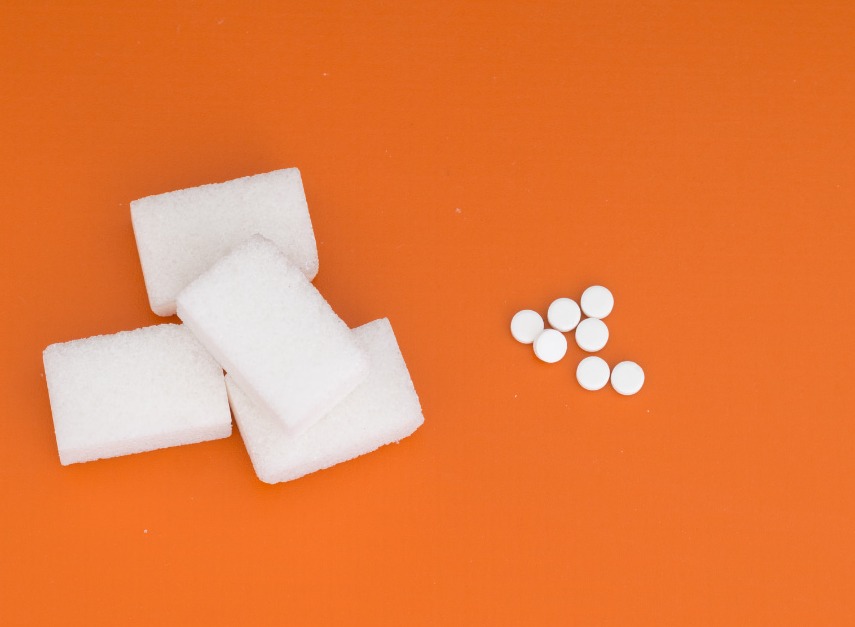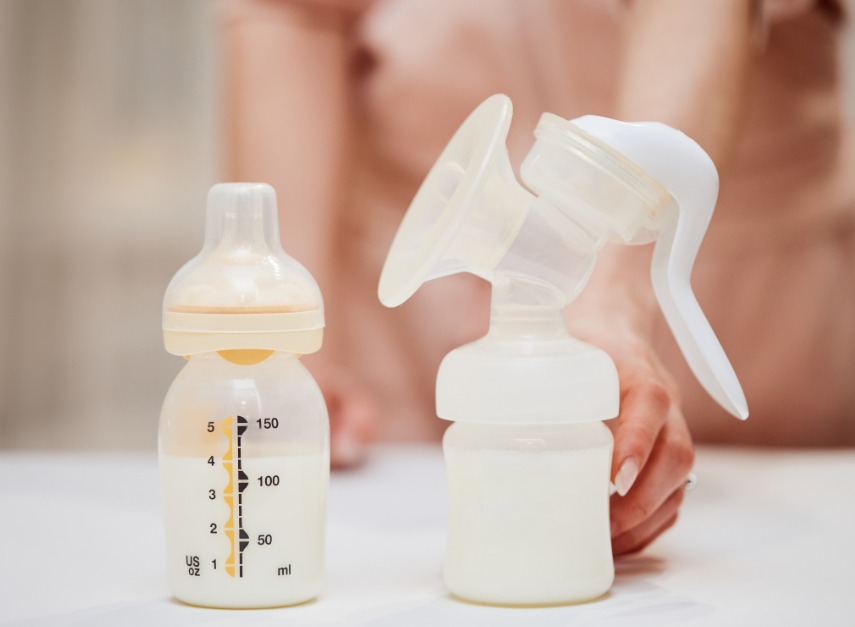- Home
- Share
- Forum
- General forums
- Good to know
- 8 tips to help you remember to take your medication
8 tips to help you remember to take your medication
- 205 views
- 0 support
- 7 comments
All comments
![]()
maddoglady
Good advisor
![]()
maddoglady
Last activity on 04/01/2023 at 12:00
Joined in 2016
109 comments posted | 14 in the Good to know group
Rewards
-
Good Advisor
-
Contributor
-
Committed
-
Explorer
-
Evaluator
I'm fine taking medication if I stick to my usual routine, for example I used to take one with breakfast, one with my evening meal and one just before bed. Which is great until I have an evening out or a later or earlier meal time.
I've changed things a bit I checked the instructions one I can take with or before food, the other two have to be taken with or after food. So now I go for one before breakfast, one after and the 3rd just before bed, so far so good!
See the signature
Maddoglady!
![]()
royden0
![]()
royden0
Last activity on 07/12/2023 at 21:02
Joined in 2017
15 comments posted | 2 in the Good to know group
Rewards
-
Contributor
-
Explorer
well I had it all work out small yellow box first thing in a morning red box breakfast long yellow box mid morning and blue box bedtime this was going well for last 5 years then the pharmacy changed there supplier diferant coloured boxes
![]()
Pippadog
AmbassadorGood advisor
![]()
Pippadog
Ambassador
Last activity on 20/04/2025 at 16:24
Joined in 2016
191 comments posted | 17 in the Good to know group
25 of their responses were helpful to members
Rewards
-
Good Advisor
-
Contributor
-
Messenger
-
Committed
-
Explorer
-
Evaluator
Routine is a must for me any change is a no no.

Unregistered member
I regularly take tablets for epilepsy. I also take pain killers.
The Epilepsy tablets [more important ones LOL] I soon remember if I have missed my pain killers
As for the epilepsy tablets [been seizure free for 38 years now] In the morning when I take them I find them wrapped up in my bra from the previous bedtime ![]() I take them then put the small bottle in the bed and I find them when going to bed. Routine starts again, undress and put the bottle in my bra
I take them then put the small bottle in the bed and I find them when going to bed. Routine starts again, undress and put the bottle in my bra ![]() etc. It works for me. Sometimes I have to take one in the middle of the day so that one sits on the coffee jar [for lunch time LOL]
etc. It works for me. Sometimes I have to take one in the middle of the day so that one sits on the coffee jar [for lunch time LOL]
Hileena
![]()
royden0
![]()
royden0
Last activity on 07/12/2023 at 21:02
Joined in 2017
15 comments posted | 2 in the Good to know group
Rewards
-
Contributor
-
Explorer
we all have quirky ways but if it works for you great
![]()
TheBoss
Good advisor
![]()
TheBoss
Last activity on 10/03/2023 at 08:16
Joined in 2017
29 comments posted | 2 in the Good to know group
Rewards
-
Good Advisor
-
Contributor
-
Explorer
-
Friend
Thank you for sharing the results with us. I took part in it, I've never forgotten my meds, but then again I don"'t have a lot.
I wonder how people who have to take a dozen of tablets every day manage to remember it all?

lesmal
AmbassadorGood advisor
![]()
lesmal
Ambassador
Last activity on 18/04/2025 at 12:56
Joined in 2018
1,461 comments posted | 131 in the Good to know group
69 of their responses were helpful to members
Rewards
-
Good Advisor
-
Contributor
-
Messenger
-
Committed
-
Explorer
-
Evaluator
Thank you for sharing the results; interesting seeing the percentages involved!
I very seldom forget to take my medication. I think after 44 years of taking medication, it's on automatic impulse and done at the correct times. Sometimes I feel like a drug addict!
I also have daily pill boxes, which I prepare a week/10 days in advance. This ensures I always have the medication ready for taking.
Your tips are very useful - thank you!
Les
See the signature
Les
Give your opinion
Survey
Articles to discover...
Subscribe
You wish to be notified of new comments
Your subscription has been taken into account








Margarita_k
Community managerGood advisor
Margarita_k
Community manager
Last activity on 07/10/2020 at 11:39
Joined in 2016
1,195 comments posted | 118 in the Good to know group
1 of their responses was helpful to members
Rewards
Good Advisor
Contributor
Messenger
Committed
Explorer
Evaluator
Recently we've asked you to answer our poll and tell us if you have ever forgotten to take your medication and we thank you for your contribution!
The results of this poll were quite astonishing: more than 70% of the respondents have at least once forgotten to take their medication, and about 15% do it regularly.
Meanwhile, 20% of the members who took the poll always remember to take their medicine, and this is good news.
For those who do forget, but would like to imrove their adherence, we've found a good explanation of why it is essential to stick to your medication schedule and make sure you take the right dose at the right time and with the right frequency. Also, in the article below you will find some tips on how to remember to take your medicines.
Many of us think it’s no problem when we miss a few doses of medication, but this couldn’t be further from the truth. All medications have a “half-life” - that is, the time it takes for your body to eliminate half of the drug dose. When you take your medication on a regular basis, your body reaches what is known as “steady state” – the amount of drug going into your body (absorption) is the same as the amount of drug going out (metabolism and excretion).
It usually takes about five to six half-lives for a drug to reach its steady state. For example, if your medication has a half-life of 12 hours, like the common blood pressure drug lisinopril (Zestril), your steady state blood levels of medication could decline by over half in 60 to 72 hours, or just a few days. Your blood pressure could creep back up and this could have ill effects on your heart health. In a nutshell, this is one reason why it is so important to take your medications regularly as prescribed by your doctor.
Often, drug side effects may occur temporarily when a drug is reaching its steady state, that is, as drug levels are rising in the body. If you miss a few doses, and then have to get back to your steady state when you resume your medication, you risk a greater chance that you may experience those temporary side effects again. This is another good reason not to miss your dose.
Here are some tips to help you remember how to take your medicine.
1. Practice Makes Perfect! Learn About Your Medicines
Learning more about what your medications are used for will reinforce your adherence to your treatment plan. Learning about your medical conditions can be a strong motivator, too. This is especially important for conditions that have few, if any, symptoms to remind you it’s time to take your medicine – like high blood pressure.
Learning about side effects are important so you can recognize them if they occur. Many side effects with drug treatment are temporary, so be sure to ask your doctor about short-lived and more long-term side effects with any medication.
2. Pill Boxes
Pill boxes are an organization tool for your pills that can easily be found at most pharmacies. Pill boxes have been around for a long time, and are especially useful if you easily forget if you have taken your meds each day. Pill boxes are also very useful for people who take multiple medications each day and at different times.
Older patients may especially find pill boxes convenient to use. The boxes are split into individual sections that make-up a week’s worth of medicine, or more, and may even be separated by times of day. They can easily fit into travel bags or purses; however, don’t leave them in a hot car.
3. Electronic Applications and Pill Reminders
Apps to help patients remember and track their medication use are convenient tools for anyone who carries a smartphone. For example, the free Drugs.com Pill Reminder App can keep a complete list of all your medications. You can choose to get pill reminders to take your meds at a special time, and receive prescription refill reminders right on your mobile device. The Drugs.com Pill Reminder App even keeps a history of when you have (or have not) taken your meds.
You can also add personal notes and get easy access to important information about your medicine online such as side effects , dosage, drug interactions and safe use during pregnancy. If you like visual clues, you can add photos of your medications for easy reference. Plus, all the data is kept on your personal device only and is fully secure and private, for added peace of mind.
4. Calendar Alerts
Maybe you prefer not to use a mobile device or just like the simple method of a calendar. Those are great tools, too. Mark your daily doses on a paper calendar at home, on your computer, or even in your little black book! Just be sure to update it frequently and mark through each dose as you take it, in case you forget from dose to dose.
Getting into a regular routine to help you remember to take your meds is really what’s most important. Find what works best for you.
5. Tie Your Medication Doses with a Daily Activity
You can tie your drug doses with a daily routine like breakfast time, after a shower, or when you get ready for bed. Keep your medications in easy-to-see (but secure) spots as a visual clue. Pretty soon taking your meds will be as routine as, well, brushing your teeth (and that might be a good time to take your meds, too).
Be sure you keep your medications in a safe and secure area, away from curious toddlers and pets. Protect your meds from extreme heat or cold, and don’t leave them in a steamy bathroom (where medicine cabinets are usually found, coincidentally!). Most medications are stable at room temperature, but under extreme conditions, they can lose their potency, crumble, or even melt.
If your medicine needs to be stored in the refrigerator, consider posting a sticky note reminder on the fridge as a reminder to grab it when it’s time.
6. Get Help from Family Members or Friends
Many friends and family take meds, and creating a team to help remind each other to take their doses can be helpful. If you live alone, maybe a friend would text you each morning or night, when they also take their meds. If a family member you live with also takes meds, you have a built in pill reminder right there at your house. Take advantage of it!
Seniors often need help to remember their medications. If you have a loved one that takes several meds, consider helping them create a pill box, printing out pictures of their pills from the Pill ID tool, and then writing in large print what each med is used for, and its name and dose. Place the pictures in a conspicuous place so that they can refer to the printouts when needed.
Large print on prescription bottles and for drug information printouts can be very helpful as older patients lose their eyesight. Your pharmacist can usually print out dosing and drug information in large type – so be sure to ask.
7. Keep an Up-to-Date List of Your Medication Names, Strengths, Dose, and Number of Remaining Refills
Having an easily accessible list of your medication specifics will enable you to provide this information correctly and quickly at a time when you might need it the most – in an emergency situation. Just be sure to update this information when medications are started or stopped. Remember – over-the-counter drugs, vitamins and herbal or dietary supplements count, too – so have them on your list.
If you utilize electronic tools, you can easily update this information as needed on the free Drugs.com Medication Guide App.
8. Ask Your Doctor and Pharmacist to Help Simplify Your Medication Regimen
If all else fails, there may be ways to simplify your medication regimen to make life easier. If you take a drug two or three times per day, your doctor may be able to find a similar drug that only needs to be taken once a day.
If you need to separate doses because you have to be careful about combining antacids or other supplements with prescription drugs due to drug interactions, your doctor may be able to find medications that do not cause an interaction.
Ask your doctor or pharmacist which medications you can safely take together at the same time to limit multiple daily doses.
Be sure to check to see if you can take your meds at breakfast, dinner, or bedtime - the most common (and often easy) times to take medications. Set up your routine around these times, if possible.
Source: https://www.drugs.com
_____________
Now, you are more than welcome to talk about your own tips and tricks that help you adhere to your treatment plan and not to forget your medications. Do you do any of the above? Or do you have absolutely different habits?
Do you think the number of medications you have to take can influence your adherence?